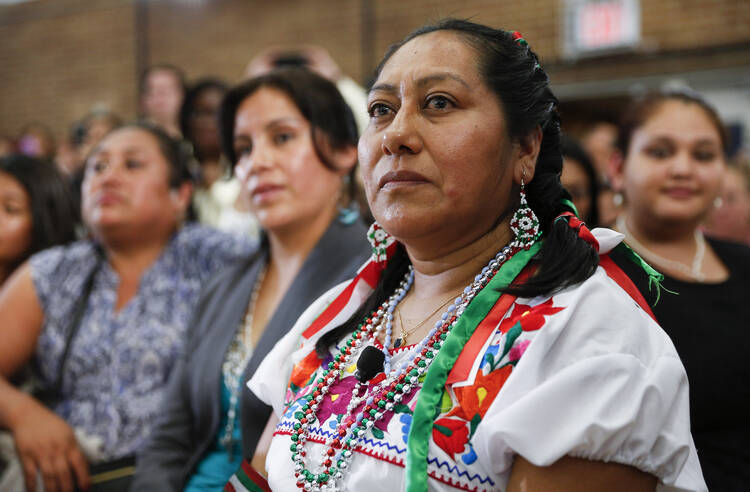In my 20-some years as a Jesuit, it seems like I’ve been a part of endless conversations about “collaboration with the laity.” As our numbers have decreased, and our awareness has grown that we are alone neither in our commitment nor our value to our ministries, the topic of collaboration has become a constant and important topic.
But over time something about the term has come to rub me the wrong way. In part, it is that sometimes when we talk about collaboration, we do it with a “we really need to get on that” sort of flavor, like it’s an option rather than a long ago decided fact, or as though, despite all of the data in front of us, we’re still basically the senior partners calling the shots in our institutions. Our imaginations haven’t yet caught up with the truth of our reality.
But I think the bigger problem for me might be our continued use in the church of the term “the laity.” The concept of the “lay person” is hundreds of years old. It refers to someone who does not have a certain skill or is not a member of a particular profession. So within the Code of Canon Law we read that “By divine institution, there are among the Christian faithful in the Church sacred ministers who in law are also called clerics; the other members of the Christian faithful are called lay persons” (Canon 207, 1).
It’s a strange thing to call the vast majority of believers “the other members” of the church. It’s to say that what is of primary value is the priesthood, though in point of fact that is just one of the many vocations of believers. And more than that it is to say the most basic characteristic or most relevant quality of Catholics lies in what they are not, or in what they lack.
Truly, if we wish to talk about roles or vocations in the church, the proper categories are not “priest” and “layperson” but “priest,” “reader,” “usher,” “teacher,” “parent,” “eucharistic minister,” “hospital chaplain,” “music minister,” etc. The documents of Vatican II surmise as much, saying Catholics who are not ordained “are in their own way made sharers in the priestly, prophetical, and kingly functions of Christ; and they carry out for their own part the mission of the whole Christian people in the Church and in the world” (“Lumen Gentium,” 31).
And should we want a catch-all term for Catholics, Vatican II offers a rich alternative, “the People of God.” As coined in “Lumen Gentium,” “the People of God” imagines Catholics as people with unique individual vocations but on a shared journey and mission. More than that the term reminds us (in a way that “lay person” forgets) that at the heart of our faith is not any one group or vocation, but God.
There can be a temptation in myself and I think in other Jesuits at times to see ourselves like super heroes; saving the city is up to us. But the fact is today we are not alone in our work but parts of bigger groups invested in our mission and, more than that, in the coming of the Kingdom of God.
Rather than broader shoulders to carry the weight ourselves, today perhaps we should be praying for a greater faith in God to fulfill what He has begun, and awareness of the many people through whom He is doing so. Rather than “collaboration with the laity,” today it’s for us to help enable collaboration and discernment amongst the people of God, of which we are one of many blessed parts.








